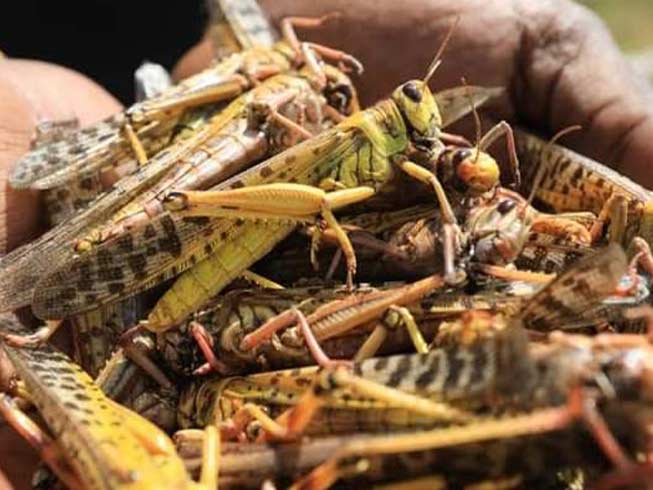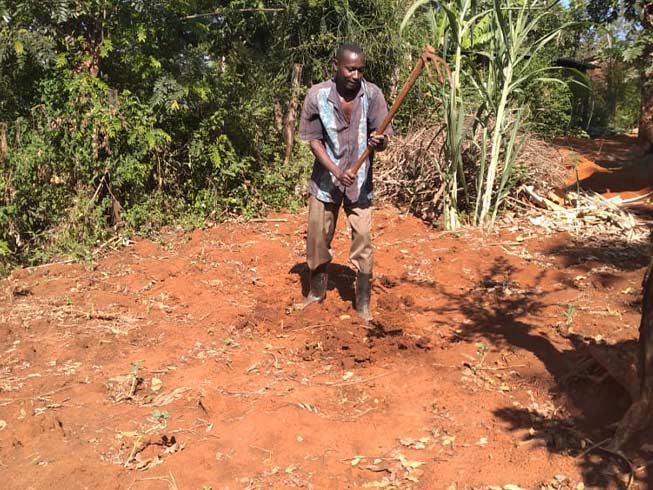Locusts invaded northern Kenya at the end of January – just at harvest time – devouring field crops, vegetables, cattle fodder and grazing land in the affected parts of the country. This blow followed the 2020 plague of locusts, which was the worst for many decades.

Feed Families, Restore Farms
Working with our Kenyan project partners, Barnabas Aid is seeking to assist vulnerable Christian families affected by locusts, beginning with 1,000 families in Mbeere and Embu on the semi-arid eastern slopes of Mount Kenya. The aim is to help these subsistence farmers speedily restore their crop and livestock production. As well as seeds, we will provide fertilizer and appropriate pesticides to deal with the locust eggs left in the soil and the surge in other pests that usually follows after a locust swarm has swept through.

We will also provide food relief in the form of corn and beans (including mung beans), which are combined to make “getheri,” the staple food of the Mount Kenya region. This will help the families survive until August, when the next harvest is due.
Better Than Before
On top of this, our local project partners plan to help the farmers store and sell any surplus crops or fodder in a profitable way, so they are no longer exploited by “middle men.”
They will also provide the farmers with seedlings of drought-resistant trees – some fruit trees and some fodder trees – choosing varieties suitable for the region. The trees will improve the soil of the farms on this, the dry side of Mount Kenya. As a new development for the farmers of Mbeere and Embu, there will be training in how to care for the trees.
